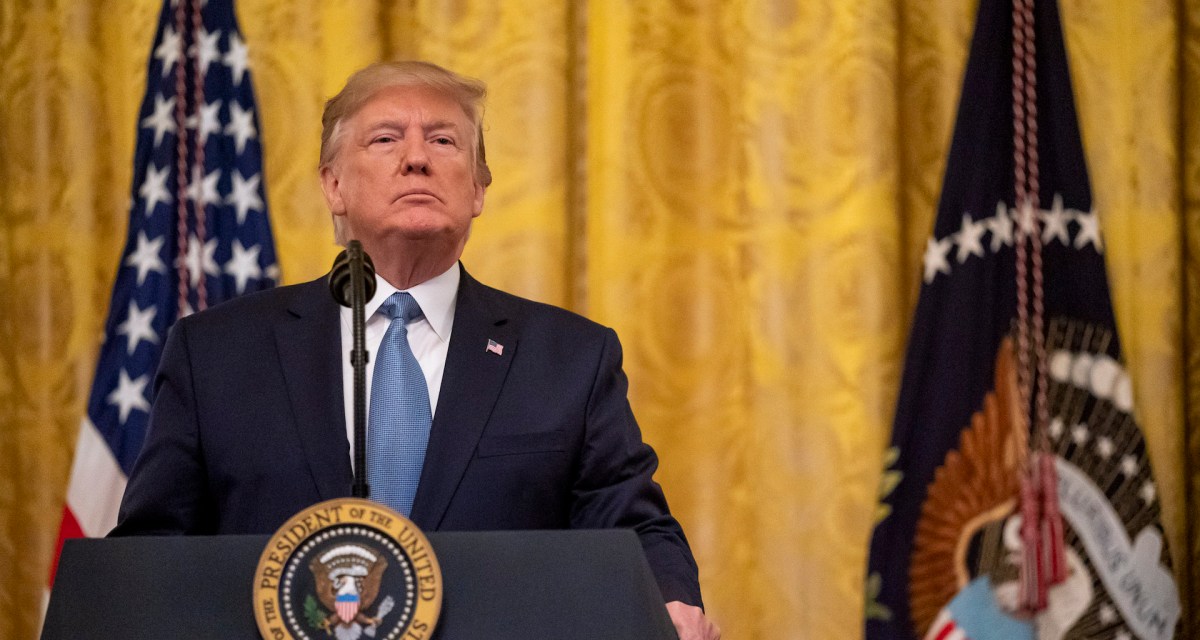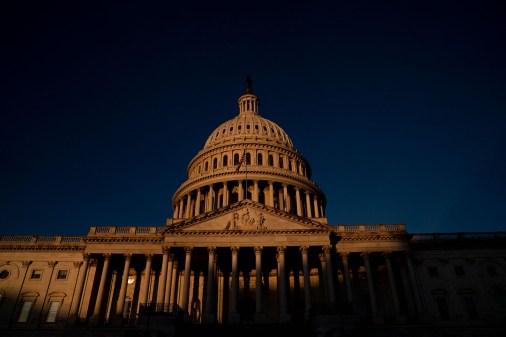Congressional pressure builds for White House to share classified cyber authorizations

Almost one year after President Donald Trump issued a classified memorandum that has made it easier for the Pentagon to run offense cyber-operations against U.S. adversaries, lawmakers still haven’t seen the details of the document, and they want the details from the White House.
Thursday evening the House of Representatives added a provision to the National Defense Authorization Act that would compel the White House to turn over the memorandum as well as any others relating to the Pentagon’s cyber-operations. The amendment was part of an “en bloc” package, meaning both sides accepted by voice vote without debate, signaling to the White House just how much interest there is — on both sides of the aisle — in allowing the legislative branch to see the memorandum.
Part of the concern is that with increased authorizations to run offensive operations against adversaries, the administration runs the risk of escalating tensions with adversaries in cyberspace without proper Congressional oversight, according to Rep. Jim Langevin, D-RI, who has been a driving force behind the amendment.
“Our actions must always be guided by our commitment to promoting stability in cyberspace. Congress has a vital role to play in ensuring any offensive cyber operations do not inadvertently undermine that stability and reflect our commitments to responsible state behavior in this new domain,” Langevin said in a statement.
The passage follows repeated requests to hear more details on the memorandum from Langevin, including one outlined in a February letter from a bipartisan group of lawmakers from the House Armed Services Committee urging the White House to allow Congress to do its oversight job. Signees included Chairman Adam Smith, D-Wash., ranking member Mac Thornberry, R-Texas, and Elise Stefanik, R-N.Y., who is ranking member of the Subcommittee on Emerging Threats and Capabilities.
“As a co-equal branch of government, Congress is responsible for legislating, appropriating and overseeing Executive Branch activities, including those executed by the Department of Defense,” the letter notes. The House Armed Services Committee spokesperson said the silence from the White House left the committee no choice but to draft legislation to get the administration to comply with law.
A committee spokesperson tells CyberScoop the White House has not responded to the House vote. When reached for comment on memorandum, a senior administration official told CyberScoop, “the Administration keeps Congress appropriately informed of cyber operations, including by providing briefings and documents.”
On the offense
Military leaders have commended the memorandum and other legal authorizations established in legislation. Just three months ago, commanders told reporters that the moves helped U.S. Cyber Command’s work to deter and disrupt foreign adversaries in cyberspace.
Brig. Gen. Timothy Haugh, the commander of Cyber Command’s cyber national mission force, said in May that the authorizations have allowed the command to “defend forward” better.
One high-profile mission was Cyber Command’s operation to prevent interference in the 2018 midterms by interrupting the internet access of the Russian troll farm. The military also reportedly launched cyberattacks earlier this year against an Iranian spy group believed to be behind ship and drone attacks. That move came after White House national security adviser John Bolton said last month that the Trump administration was looking to expand offensive operations in cyberspace.
Langevin, who has been supportive of maturing and growing U.S. Cyber Command, said he wants more details on the underlying strategy and statutory implications. The lawmaker said he intends to fight for the amendment when the House and Senate negotiate the final version of the defense bill.
“I have largely supported the Administration’s more forward-leaning posture, particularly with regard to protecting our 2018 midterm elections,” Langevin said in a statement. “But regardless of my feelings toward the underlying strategy, it is unacceptable that the White House continues to stonewall our attempts to oversee sensitive operations.”



